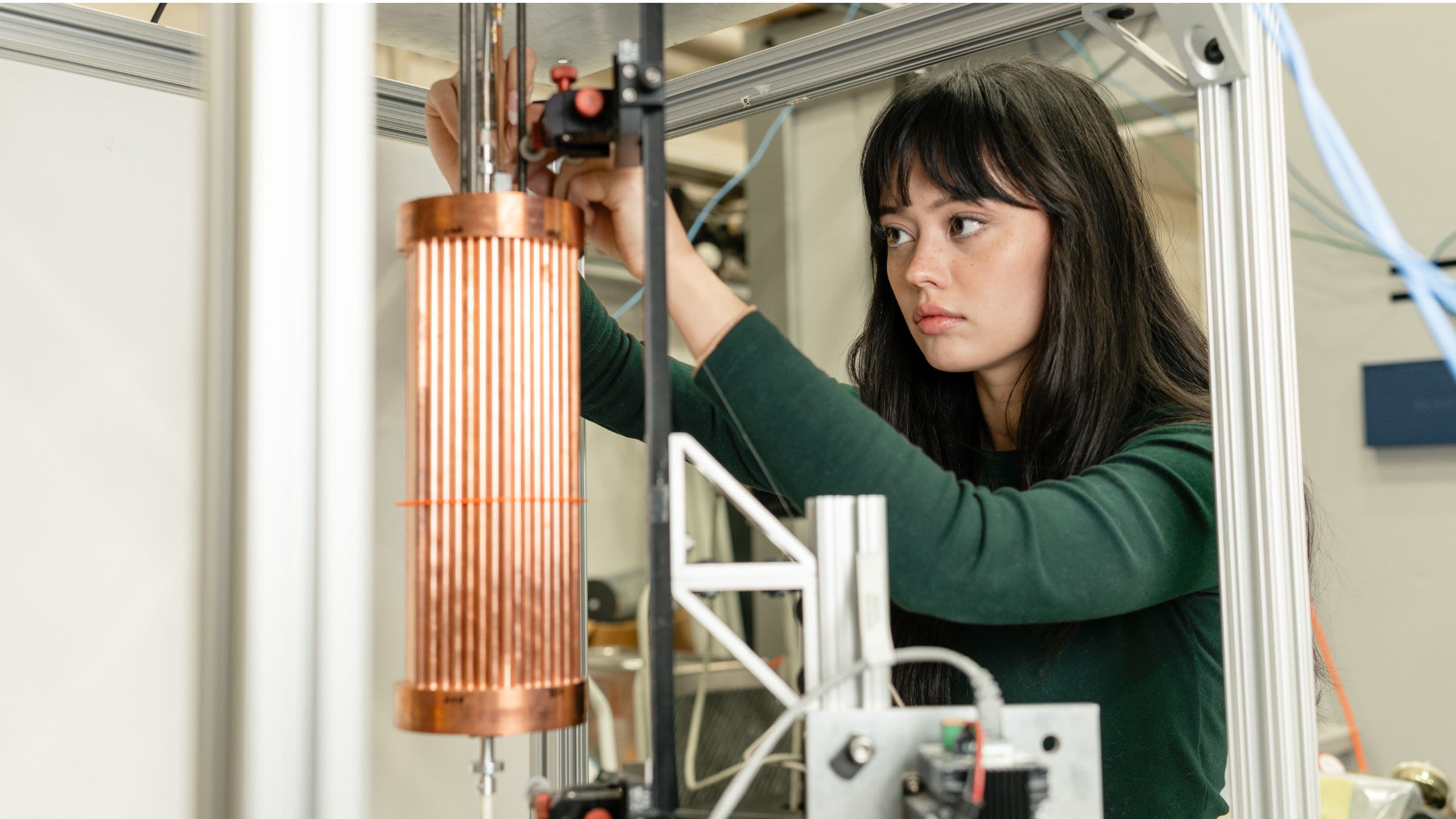Cambridge team joins ALPHA hunt for dark matter
A team of Cambridge University scientists working with colleagues from around the world were recently awarded a $3.7 million grant to build an experiment to search for the axion, a promising candidate for dark matter.

The Axion Longitudinal Plasma Haloscope (ALPHA) is an international
project that will use a powerful superconducting magnet to search
for axions, particles that may account for the invisible dark matter that makes up 85% of the matter in the universe. Their project recently received $3.7 million in funding from the Gordon and Betty Moore Foundation, the Simons Foundation, the Alfred P. Sloan Foundation and the John Templeton Foundation, which have partnered to support innovative ‘tabletop’ experiments small enough to be housed in a university lab, yet explore realms of physics typically probed by largescale facilities.
ALPHA, which will be sited at Yale University in the United States, uses a metamaterial resonator placed inside an existing 16-Tesla magnet.“This ambitious experiment aims at expanding our understanding of the fundamental structure of the universe while still fitting into a typical room-sized university physics research lab,” said Hiranya Peiris, who recently joined Cambridge as Professor of Astrophysics (1909) at the Institute of Astronomy and is a founding member of the ALPHA collaboration.
The search for axions, which sits at the intersection of particle physics and astrophysics, has initiated a new connection between the Cavendish Laboratory and Cambridge’s Institute of Astronomy. Scientists from both institutions will support the project by providing R&D and testing for the superconducting resonator components.
Siddharth Saxena, superconductivity specialist at the Cavendish Laboratory, said: “Our Cambridge team will support the design and development of the detection systems to make this table-top experiment cutting edge in its resolution and efficiency.”
“By pooling their resources and expertise, the foundations have boosted the impact of their support and are able to collectively fund more tabletop projects that could push the frontiers of fundamental physics,” said Mete Atatüre, Head of the Cavendish Laboratory. “This development is very timely for Cambridge, given the current interest in boosting dark matter science in the UK.”
ALPHA is a collaboration between 12 institutions: Yale University (which is hosting the experiment); Arizona State University; the University of California, Berkeley; the University of Cambridge; the University of Colorado at Boulder; the University of Iceland; ITMO University; Johns Hopkins University; MIT; Oak Ridge National Laboratory; Stockholm University, and Wellesley College.
image:
University of California, Berkeley graduate student Heather Jackson performs research on metamaterial resonators to be used in the plasma haloscope search for dark matter axions. Credit: AJ Gubser, UC Berkeley